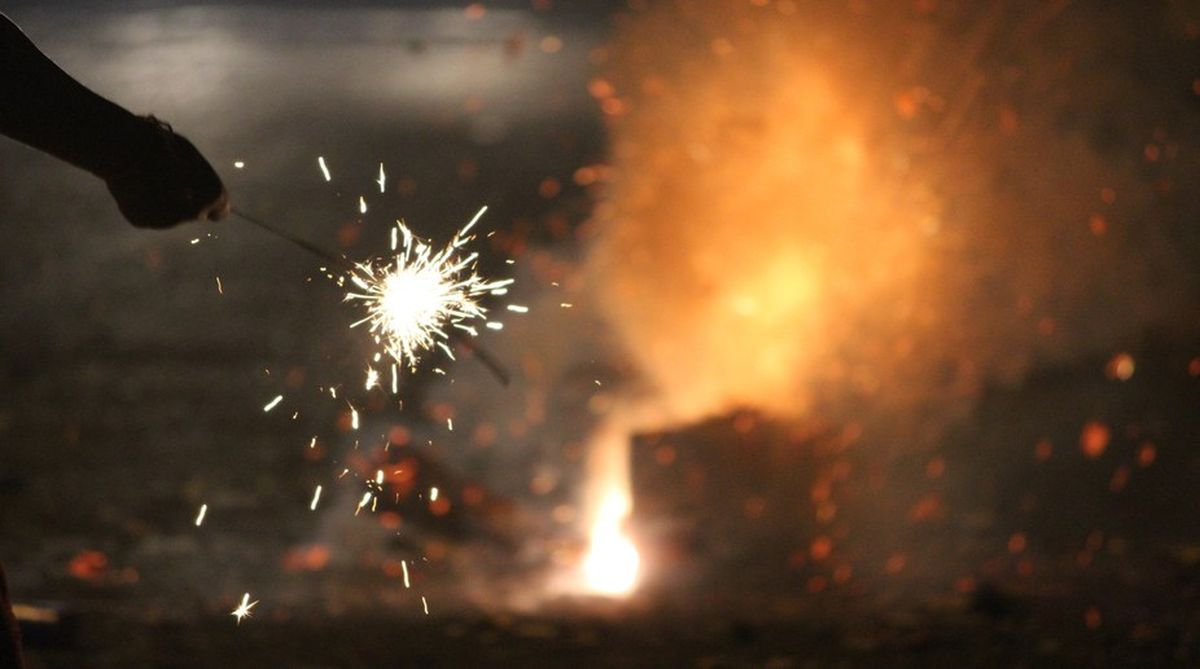The National Green Tribunal (“NGT”) on 9th November 2020, ordered for a complete ban on the sale and use of all kinds of crackers in the National Capital Region (“NCR”) between November 09 to November 30, 2020. The deteriorating air quality in the NCR, and also the fears of worsening the conditions of the COVID-19 patients, acted as an important consideration for the NGT to prescribe the cracker ban. While one cannot deny the public good and the noble intentions behind the order, it is important to consider the limitations and unintended consequences arising from it.
Expansive orders, such as the present one, often disregard the cost and the logistics of ensuring compliance. Generally, substantial compliance with such orders requires an effective machinery for penalizing the lawbreakers, to produce a deterrent effect against the bursting of crackers. Invariably, this task falls on the shoulders of an already overburdened and understaffed police force with no added incentives to implement the order. This problem of implementation is of particular importance in the context of India, which has one of the weakest police forces in the world, and an abysmal ratio of 138 police personnel per lakh of population. To add to the woes, it suffers from a severe resource crunch and lacks the sensitivities to implement such large-scale measures, as the recent implementation of a nation-wide lockdown seems to indicate.
The incapacity of the state to implement such orders was acutely felt in the aftermath of the Supreme Court judgment in the matter of Arjun Gopal Union of India, where the Court chose to impose heavy restrictions on the burning of crackers instead of an outright ban. The order was largely disregarded, and NCR witnessed cracker burning without any perceptible change. Therefore, it is reasonable to believe that the present order was not to be implemented in its letter and spirit.
However, as often is the case, to demonstrate compliance, the police will likely resort to token confiscation and apprehend individual violators. The victims of such action are prone to be the ones who are incapable of offering a bribe or availing social protection by selling in illegal but collectivized bazaars. Their businesses become more vulnerable to arbitrary police action and solicitation of illegal bribes. In addition, the ban makes the procurement of crackers riskier and costlier, disproportionately impacting the economically weaker vendors. As a result, a direct consequence of banning crackers will not be the improvement of air quality, but reduced freedom for the least well-off. In this sense, the ban is an overbroad remedy opted by the NGT, especially when the evidence of it making a significant impact on the air quality is limited.
The report of the Central Pollution Control Board (“CPCB”) dated November 06, 2020, which formed a part of NGT’s consideration, states that the elevated levels of PM 2.5 particle concentration (a measurement of pollutant levels in the air) is predominantly present for the first 48 hours. Besides, it also states that the air quality of Delhi was deteriorating since the second week of October due to stubble burning, hinting towards the real culprit behind NCR’s poor air quality. While the judgment explores the link between pollution and an increase in COVID-19 related complications in detail, it does not adequately explore the impact of the short spurts of particulate concentration during Diwali. Yet, the order directly impacts the livelihood of 4 lakh workers engaged in the industry as submitted by the State of Tamil Nadu. Moreover, the Order fails to address the deeper causes of pollution in NCR and Delhi as such construction dust, vehicular pollution, and stubble burning.
In turn, the inevitable violations of the order will further foster and encourage the culture of disregarding judgments of the Supreme Court and NGT, especially where the compliance cost is more than the pleasure derived from the action. This adds to the general tendency of disregarding compliance with environmental legislation due to weak supervision. As a matter of prudence, therefore, the Court will gain more if it chooses to relegate such issues to the legislature. The adversarial nature of the proceeding as well as the inflexibility in issue-specific proceedings do not make the Courts an ideal venue to adjudicate such matters. In comparison, Parliament has a broader bandwidth to reconcile competing rights and interests, and allows for consideration of important ancillary factors such as unemployment arising from an outright ban.
Given the lack of research indicating the use of crackers as a major cause of pollution in NCR, the Parliament should avoid considering an outright ban. Instead, I suggest a very limited form of state intervention such as making it easier for the consumers to identify eco-friendly crackers through the introduction of easily recognizable marks. In the long term, neighborhoods can also be incentivized for reducing the use of crackers by rewarding the areas that have lower pollution-levels post-Diwali through municipal upgrades and additional resources. Such an exercise will require the introduction of more localized air quality indicators that provide real-time data and assist in measuring the impact of crackers on air quality. These measures can also help in introducing more localized approaches towards tackling pollution and would go a long way to reduce its scourge in the NCR.
Read more: The Cracks in India’s Anti-Bribery Law
Post Disclaimer
The opinions expressed in this essay are those of the authors. They do not purport to reflect the opinions or views of CCS.






